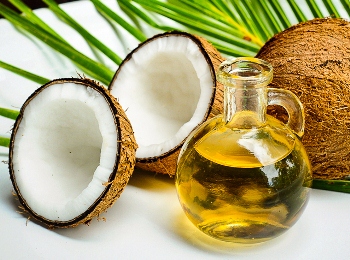 Its dubbed by many as a “super cure” for ailments from diabetes to dry skin. Fiona Baker discovers uses to make this fragrant oil work in your favour
Its dubbed by many as a “super cure” for ailments from diabetes to dry skin. Fiona Baker discovers uses to make this fragrant oil work in your favour
1. Weight loss
A study by Sydney’s Garvan Institute of Medical Research found that a diet rich in this oil helps keep fat off and protects from insulin resistance. Its medium-chain fatty acids are said to result in a rise in energy, metabolism and calories burned, and a decrease in food consumption, body fat mass and body weight.
Suggested use: Start by adding 1 tsp to your daily diet and work your way up to 4 tsp a day.
2. Soft skin
Beauty experts claim that coconut works wonders for skin. Trials have confirmed that topical application of the oil in its virgin form can improve skin conditions such as xerosis (abnormally dry skin) and dermatitis.
Suggested use: Apply the oil like a moisturiser. It may feel greasy but it absorbs fast, and a little goes a long way; use 1 tbs for the whole body.
3. Healthy hair
Polynesian cultures have used coconut oil to give them lustrous locks for centuries, and research shows it can prevent and repair hair damage. In one study that compared mineral, sunflower and coconut oils as hair conditioning treatments, it was the only one that reduced protein loss, which can lead to hair breakage.
Suggested use: Melt 2 tsp and apply to the scalp and hair lengths. Leave in for an hour or overnight, then wash out with shampoo.
4. Anti-fungal
Research by the University of Iceland found the anti-microbial properties in this oil kill the infection-causing fungus candida without causing development of drug-resistant strains, as found in the use of other anti-fungal treatments.
Suggested use: To treat Candida, add a small amount of oil to your daily diet, and work your way up to 3.5 tbs.
5. Cooking
Coconut oil has a higher “smoking point” than most oils, meaning it can be used at a higher heat before it starts to lose its integrity. It also retains its flavour.
Suggested use: Try it in stir-fries, baking and smoothies. The virgin oil is healthier and has the characteristic nuttiness.


















Comments are closed.